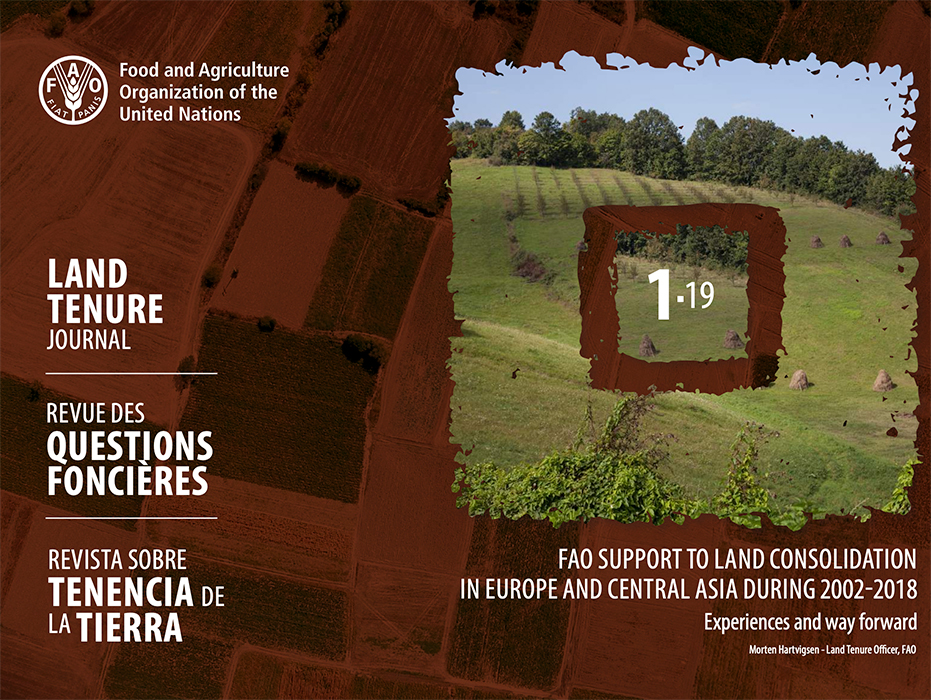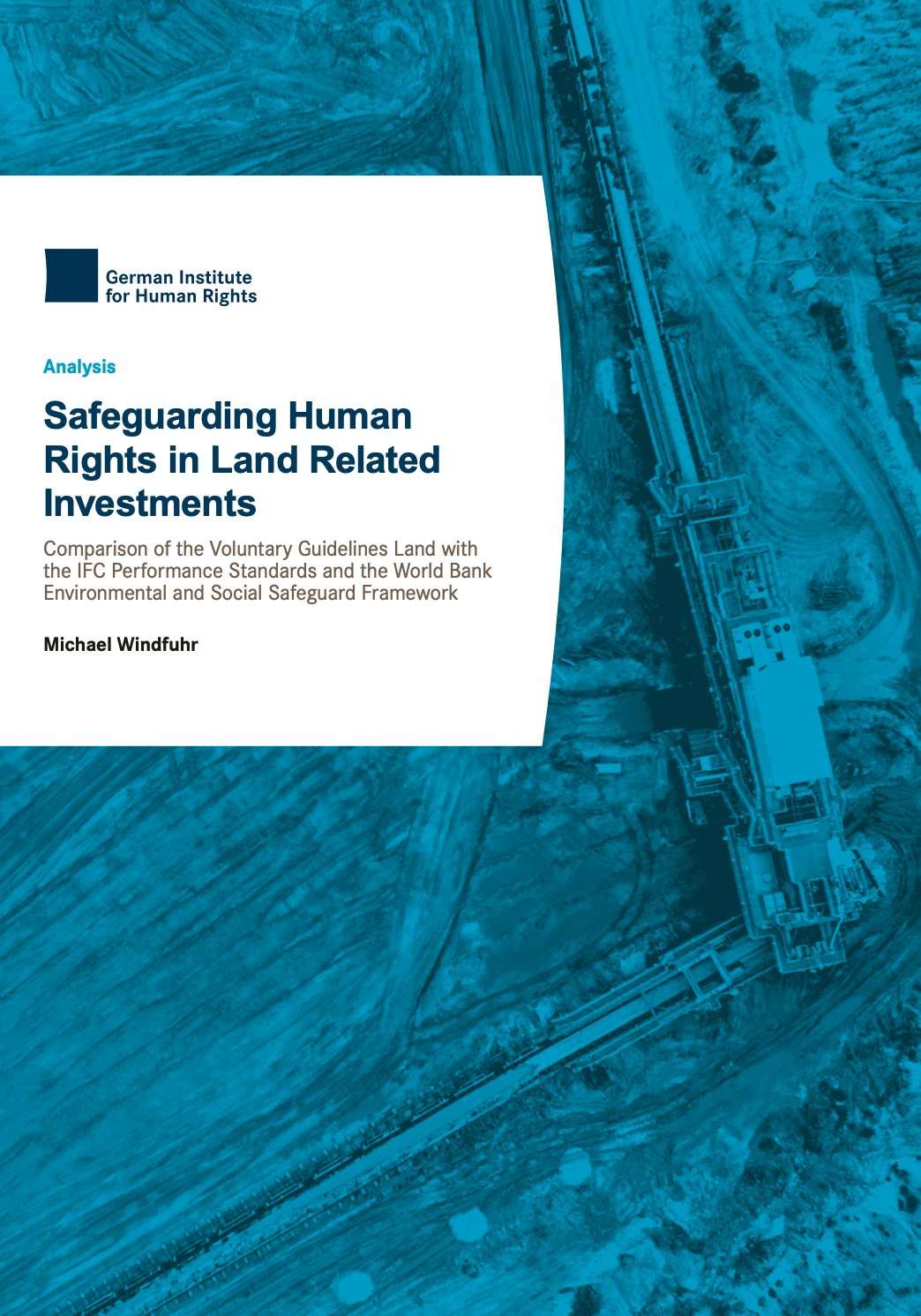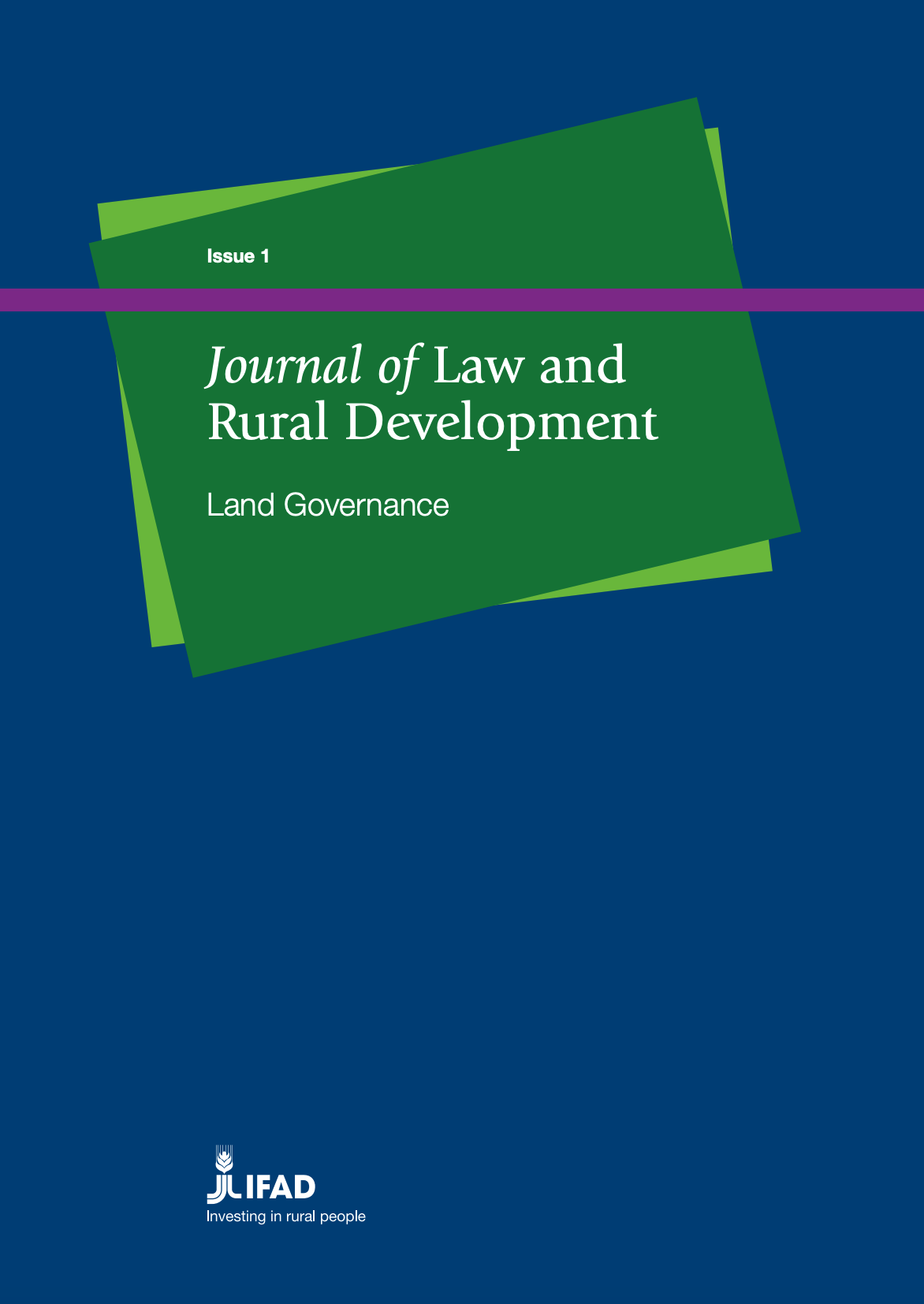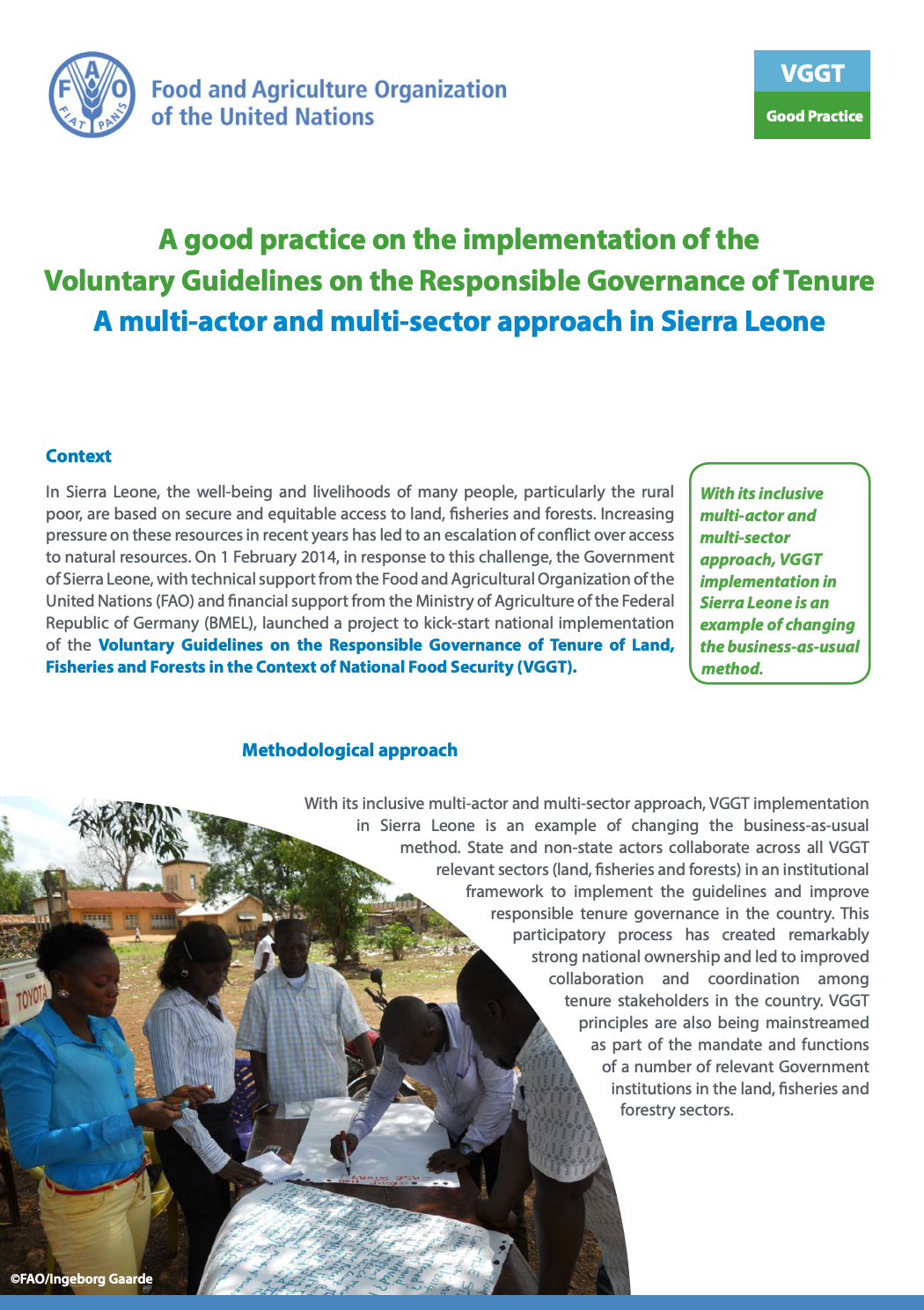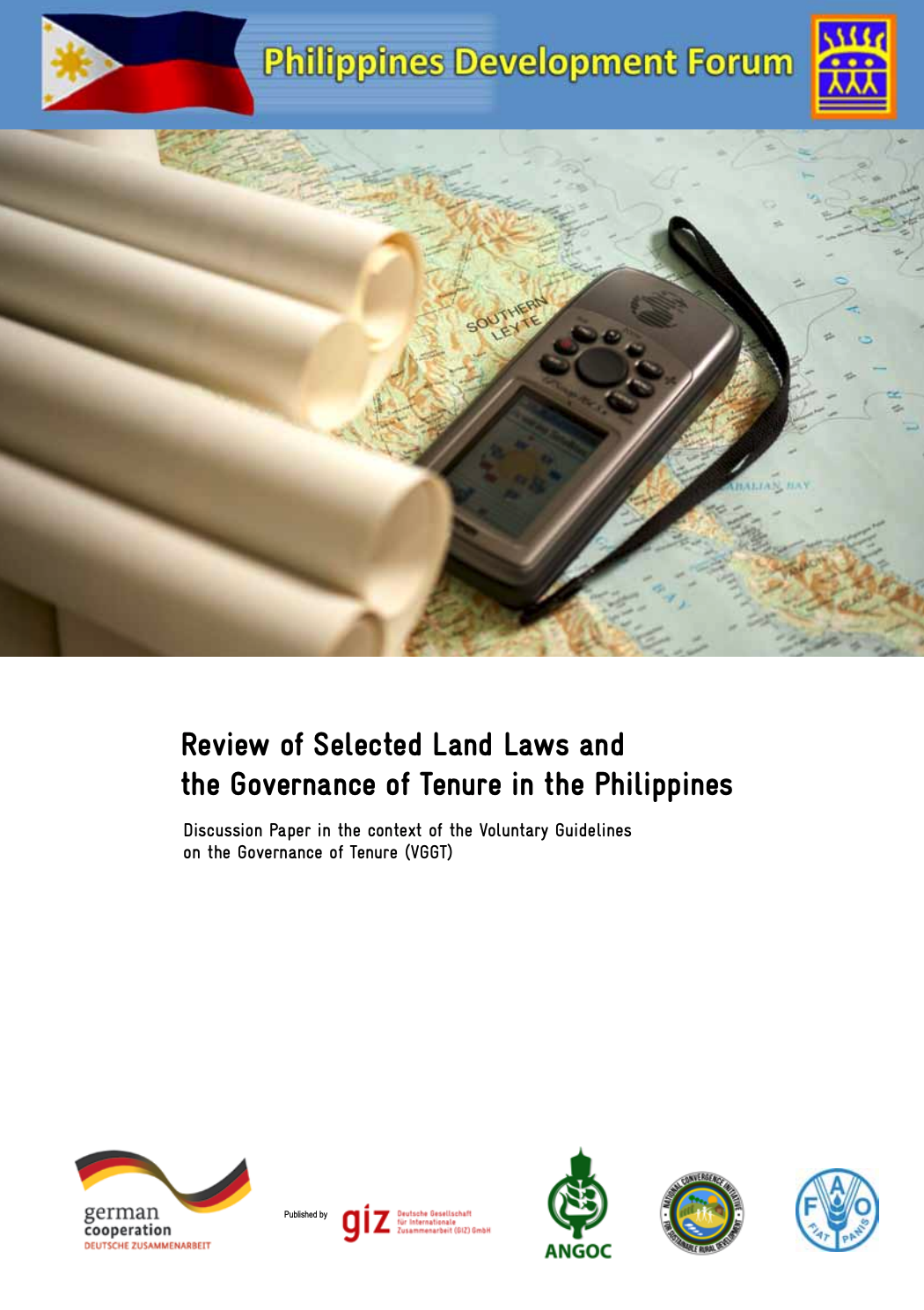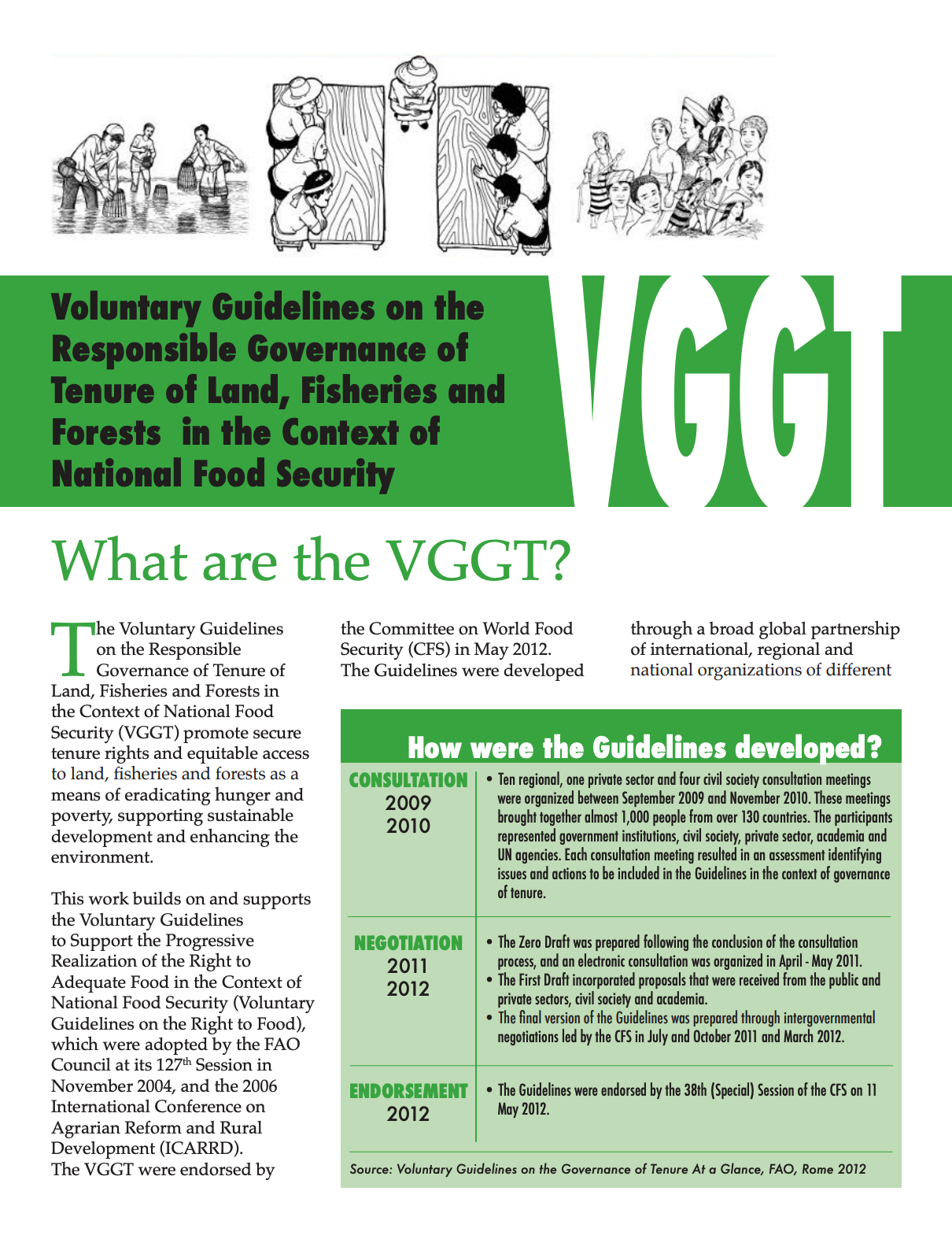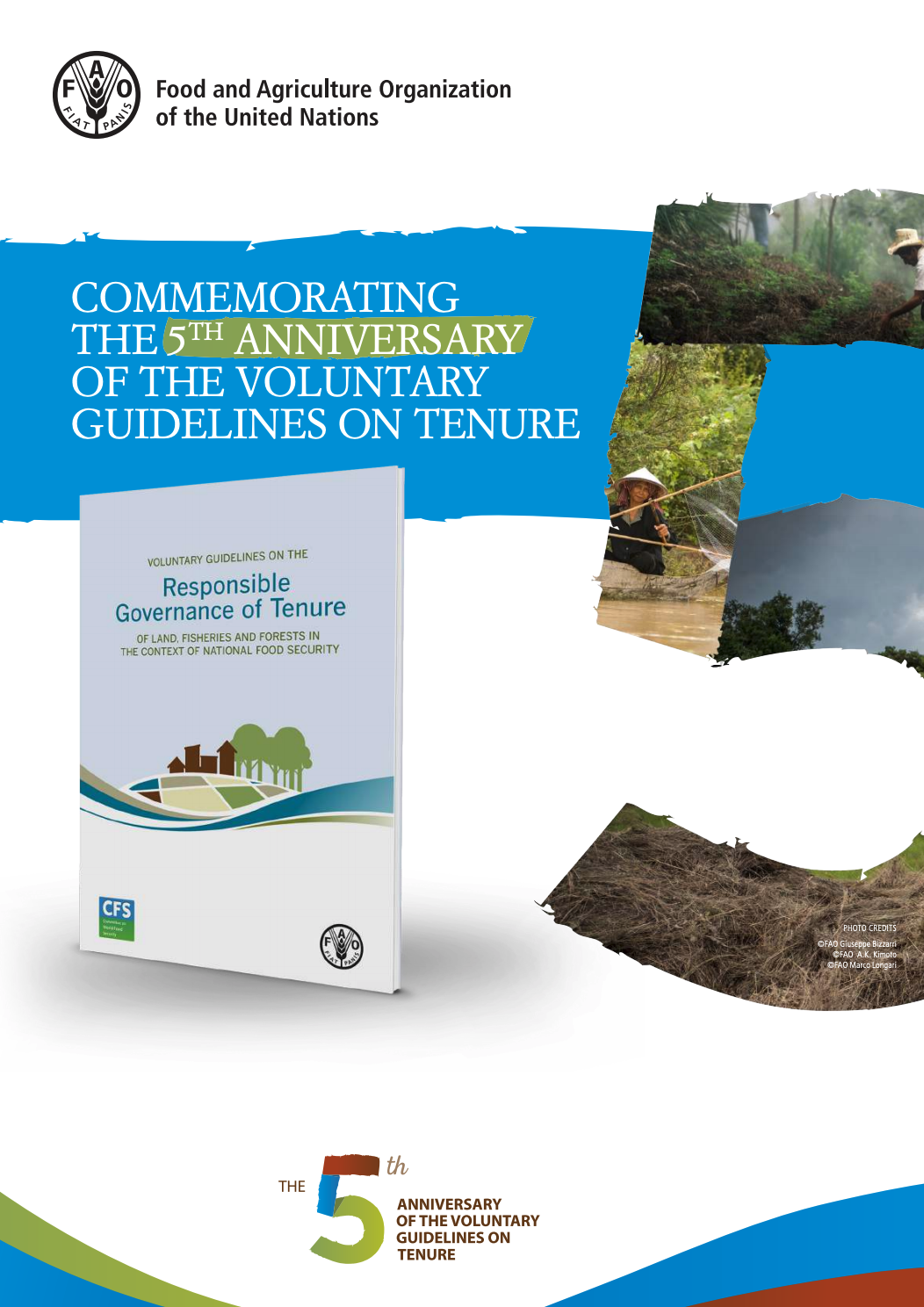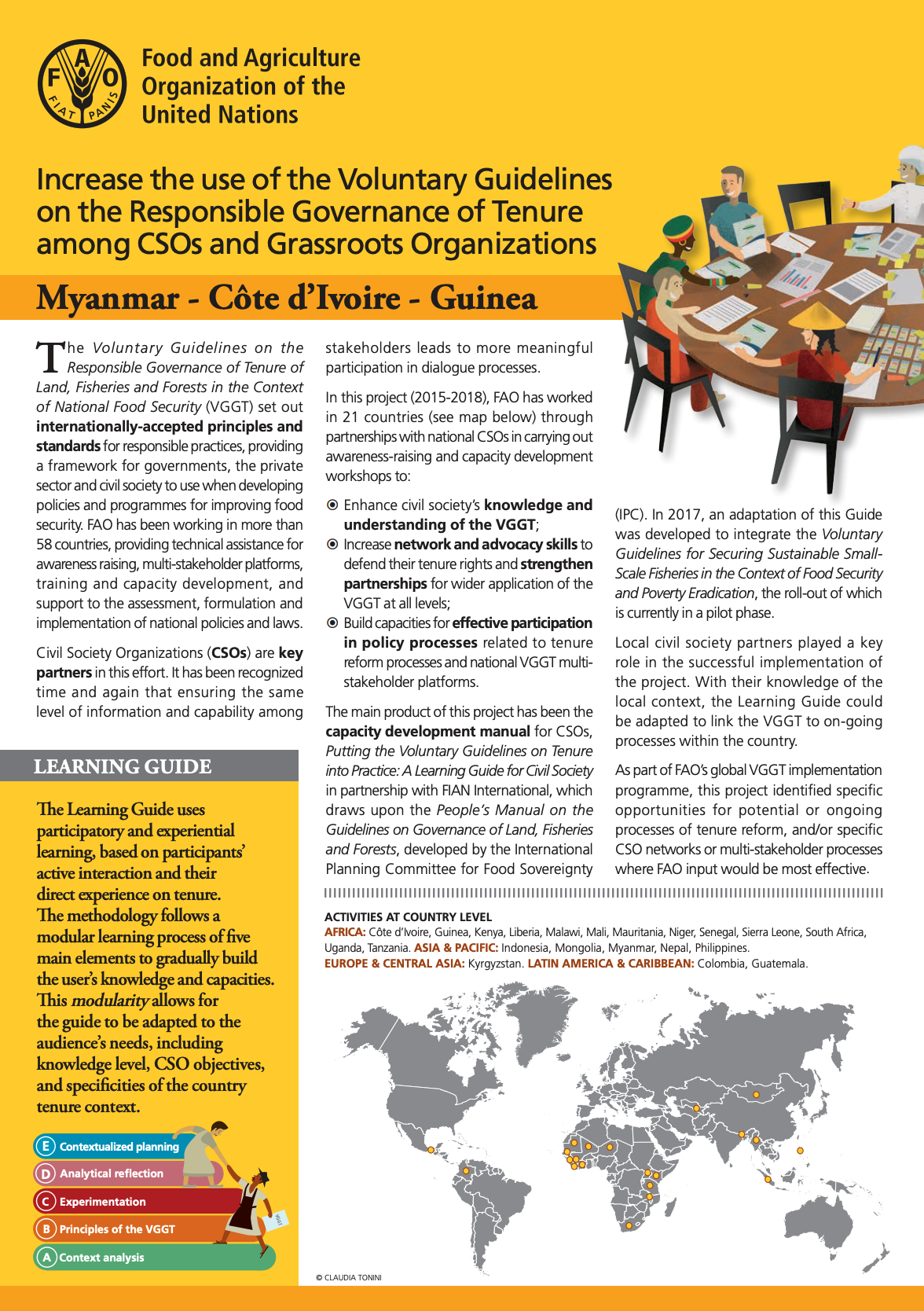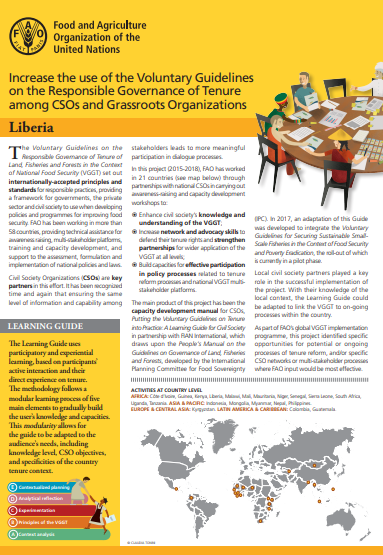Voluntary guidelines on the responsible governance of tenure of land, fisheries and forests in the context of national food security
Tackling the issue of land and resource tenure is one of the prerequisites for mechanisms such as REDD+ to have positive impacts not only on reducing emissions from the forestry sector but also in reducing poverty and achieving food security. These new guidelines by the Committee on World Food Security (CFS) outline principles and practices that governments can refer to when making laws and administering land, fisheries and forests rights.



